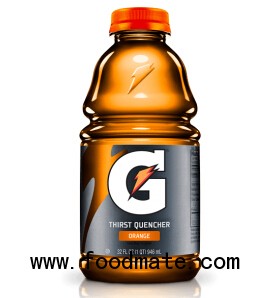
Consumer Reports, a non-profit consumer advocacy group which publishes an eponymous magazine, evaluated 20 beverages, including sports drinks, coconut water, maple water and enhanced water, gauging the ingredients and nutritional value of each.
Based on its analysis, the organization found that most fell short of the value promised to consumers, particularly when it comes to hydration. Consumer Reports states “it’s unlikely” that these packaged drinks are more hydrating than regular water, noting that “few people exercise so vigorously that they need to replenish electrolytes.”
“Any liquid is going to be hydrating, even coffee,” Leslie Bonci, a dietitian and director of sports nutrition at the University of Pittsburgh Medical Center, told Consumer Reports. “Do vitamins and minerals add to hydration? No. What’s hydrating is the fluid.”
Consumer Reports also points to high sugar levels in some sports drinks and the presence of artificial ingredients in zero- and low-calorie versions to bolster its claim that drinking plain water is a better option for most consumers. When it comes to plant-based waters, the article takes a slightly softer tone, writing that beverages like coconut water and maple water might be nice for a change-of-pace, though it notes that their price points — as compared to free tap water — is less appealing.
The article also took aim at the value propositions of vitamin-added water and purified and flavored waters. Examining the benefits promoted by brands like Vitaminwater and Sobe Lifewater, Consumer Reports writes that while drinking an occasional vitamin-enriched water is fine, “you’re still much better off getting your vitamins from a balanced diet. As for unsweetened enhanced water brands, including Propel and Smartwater, Consumer Reports has a simple assessment: “Next time you’re looking for a refreshing, noncaloric drink, try chilled tap water with a squeeze of lemon.”





